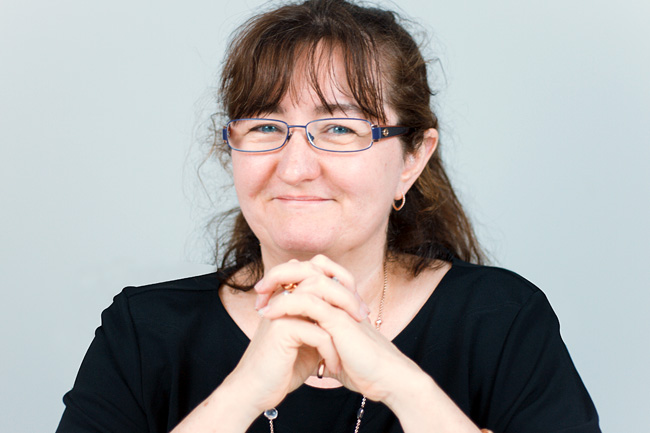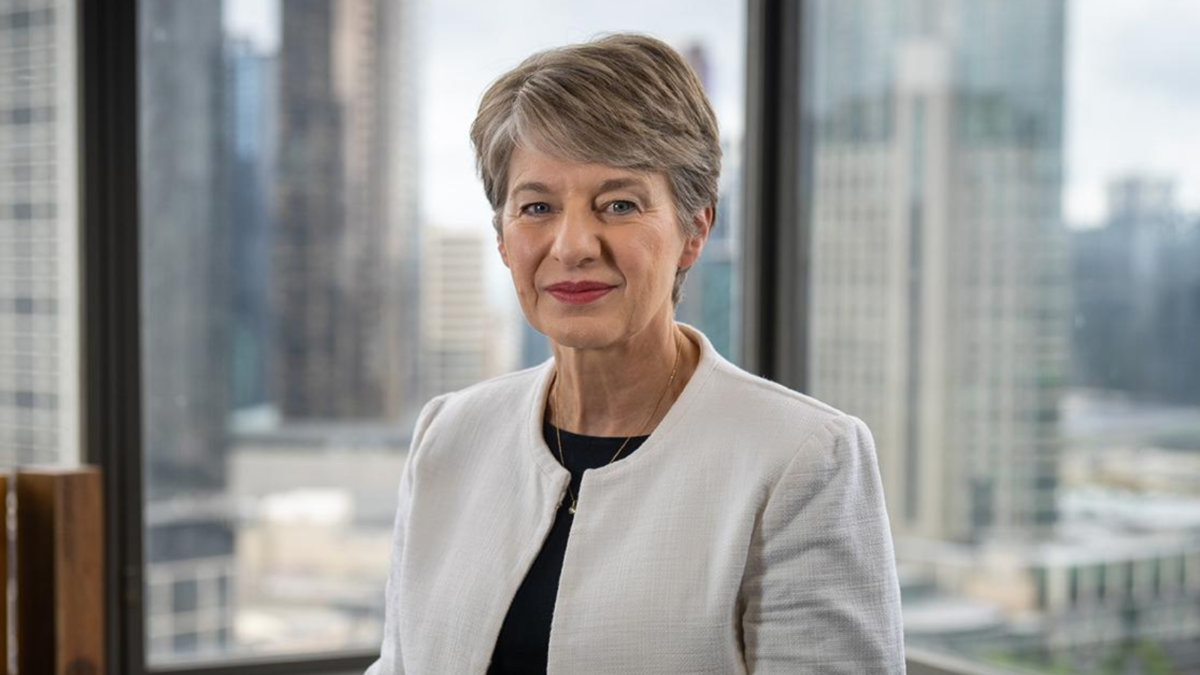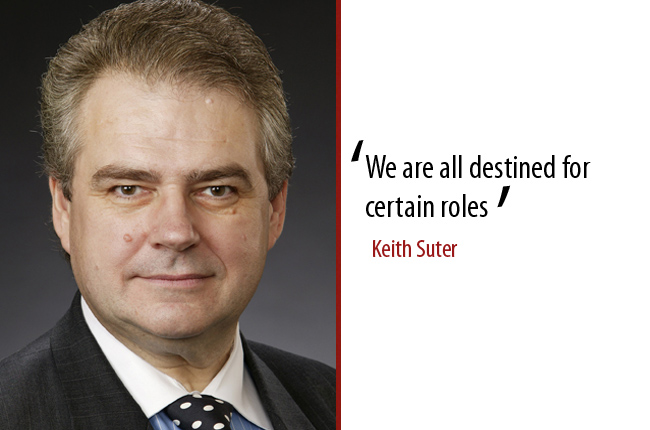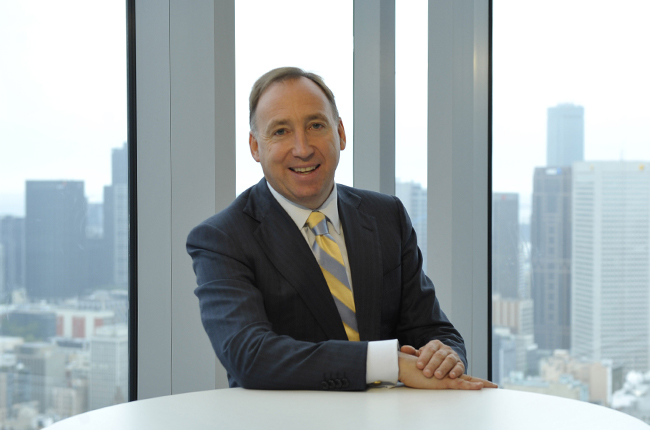Frontier evolves in a brave new super world
Fiona Trafford-Walker … ‘we have to be the voice of members who don’t have a voice’
On the cusp of its 20th birthday, Frontier Advisors will hold its annual conference in Melbourne next week. Greg Bright spoke with the big asset consulting firm’s Director of Consulting, Fiona Trafford-Walker, about the evolution of Frontier and the changing face of asset management in general.
Australia is, probably, the best advised country in the world for fiduciary investors in the institutional space. The interesting thing about this, in my view, is that Australian super funds have kept up strong relationships with their asset consultants even while they have built up their in-house capabilities. I suspect that a big part of this is the calibre of people at the major consulting firms in Australia.
The relationships between asset consultants and super funds have changed over the years but many of the people have remained constant. Fiona Trafford-Walker, who may well hate me for saying this, has seen much of it following her start in the industry in 1992. And, thanks in no small part to her, Frontier Advisors has continued on its own growth trajectory, from being an early mover in real asset specialisation to offering more and more advice services, while staying the course with an unsullied track record for independence.
“The reason that Frontier was created was the main concern about the possibility of a conflict between funds management and investment consulting,” she says. “We continue to have that view… I still think, today, that there’s a potential conflict there, but I don’t know whether the market really cares although it is clear that some funds do. For us, it’s about trying to stay true to what we are and what we believe.”
Frontier, which is owned by several big industry funds, has resisted the temptation to have its own multi-manager investment products, or so-called ‘implemented consulting’ services, unlike most of its competitors. And, as everyone in the industry knows, managing the money, rather than advising on it, is where the money is.
Trafford-Walker, a proud Queenslander from Townsville, started her career at the old Towers Perrin, where she worked with Ray King, the current Mercer consultant who was the first Head of Wholesale of the-then Industry Fund Services. Whilst at Towers Perrin, King recruited Trafford-Walker to move to Melbourne in early 1992, and when King left Towers Perrin in mid-1994 to start IFS’ asset consulting business, Trafford-Walker joined him shortly thereafter. Hence the 20th birthday.
The bravest decision that they all made, though, was in 1999 to split the firm, with slightly different owners, into funds management and asset consulting. Trafford-Walker took the consulting side and Damian Moloney (now the chief executive of Frontier) took the funds management side.
Subsequently, Frontier has grown to have more than $200 billion under advice, more than 50 staff and with superannuation clients ranging from industry funds to government funds to corporates. More recently, and increasingly, Frontier has also been advising organisations outside the super industry.
The creation of the new position of chief executive in 2011, which Damian Moloney was recruited for, has freed up Trafford-Walker to concentrate on the important side of the business in advising and providing research and various other services to clients. Moloney has segmented and expanded the firm’s offering and chased new business in a fashion which didn’t happen before.
This has had spin-off benefits for clients. Last year, for instance, Frontier was able to form a global alliance of like-minded firms to provide better global research for its Australian clients, called the ‘Global Investment Research Alliance’ (GIRA).
The first two affiliates of GIRA are Segal Rogerscasey, which is well known to Australian funds because of a prior connection to the former InTech Investment Consulting (now owned by Morningstar), and LCP of London.
Frontier aims to have an Asian specialist research firm too, which it is trying to put together, as well as a South American one, which Segal Rogerscasey is currently looking for. The Asian one is an interesting proposition because there is no Asia-wide independent institutional research company. Frontier may have to put this together itself. In the meantime, Frontier staff travel extensively overseas to conduct global manager and investment research that has a direct linkage to their client base.
Trafford-Walker says: “We will leverage our GIRA partners more and more for the benefit of our clients, but we also believe that the “we know because we go” approach is one that our clients value. We’ve actually increased our own global research since we formed GIRA because we think our clients like the fact they can easily talk to the key local researchers who can tailor the discussion for them and specifically look at what matters to them.”
She says that one of the other reasons Frontier has been successful, apart from its independence, is that it is Australian owned and operated. “My view is that there is a lot to be said for having a local perspective,” she says. “Our market is very sophisticated and it’s going through a lot of change, including regulatory change. We have been there from the beginning and can closely associate ourselves with all the funds and their history… Obviously you can learn things from overseas firms and Towers Watson [the third-largest asset consulting firm in Australia] has also been a strong competitor, but the Australian perspective is important.”
She says that the history of Frontier has several parallels with the history of the other biggest asset consulting firm in the Australian market, JANA Investment Advisers. Although JANA is now owned by National Australia Bank and has developed implemented consulting products, it started its life as an independent firm, created by John Nolan, and has a similar collegiate culture to that of Frontier.
Frontier and JANA co-produced a controversial paper in 2011 about investment management fees. The paper floated the idea that managers should be paid a flat fee to cover their overheads and then a performance-based fee. The idea was well-praised by academics and theorists (and journalists) but has struggled to gain traction.
The idea came about from discussions between Trafford-Walker and Ken Marshman during the Global Financial Crisis. Trafford-Walker says: “It’s still something I talk about and dream about.” But even though JANA and Frontier probably advise about 80 per cent of the institutional market between them, managers have demonstrated sufficient power to stymie the proposed fee model. Aggregate fees are coming down and Australia is a low-fee market compared with the rest of the region, however, the response to the efforts of consultants to reduce management fees further seems frustratingly slow.
“We have to be the voice of members who don’t have a voice. I will keep banging on about this forever,” she says. “There is a lot more talk these days of getting value for money so continuing to discuss fees and fee models is a good thing. At the moment, fee structures are not right in my view.”
With respect to her own part of the industry, from a business perspective, Trafford-Walker observes that asset consulting needs to continue to adapt its value proposition to the changing environment. With the growth of super funds, for instance, and the insourcing of investment management which has occurred in recent years, there is a threat to the role of consultants. Some big funds, too, have more than one consultant. AustralianSuper, the country’s biggest super fund, employs both Frontier and JANA.
For Frontier, with the creation of a separate CEO role, there has been a lot of thought going into ‘multi-dimensional topics’, Trafford-Walker says. The firm has developed a “governance and business advisory group” which helps funds position their investment platforms for the future. In fact, the only place Frontier will stop is in doing things at the ‘coal face’ at the member level, such as member communications.
For governance advice, this extends to the board and internal team level, covering aspects such as board composition and decision making protocols, as well as providing ‘assurance reviews’ on internal teams’ capabilities.
“But big super funds are generally really well run,” Trafford-Walker says. “They are high-grade institutional quality from an investment perspective. So, other, non-super, organisations sometimes come to us and ask for advice, and we can leverage what we do in the institutional level into that part of the market.”
Trafford-Walker is one of the increasing number of big super fund people who believes that funds should make peace with the SMSF market and embrace what SMSFs have to offer. “It would make sense for the industry to lay down its arms. People have the right to choose where they invest their own money and if a SMSF is right for them, then that’s fine. But if not, then a ‘profit to members’ fund is a great option,” she says. “I feel passionately about education in general and it’s better education that will help in the debate… I think that individuals have to decide for themselves. It’s their money and they have to make responsible decisions. But there are many, many people who are unable to do this and this is where better financial education and a good communication strategy from the Funds can genuinely help them.”
Lack of trust of the financial services industry in general, especially since the global financial crisis, is a big issue, she believes. Not-for-profit super funds are well regarded and therefore in a good position in such an environment.









